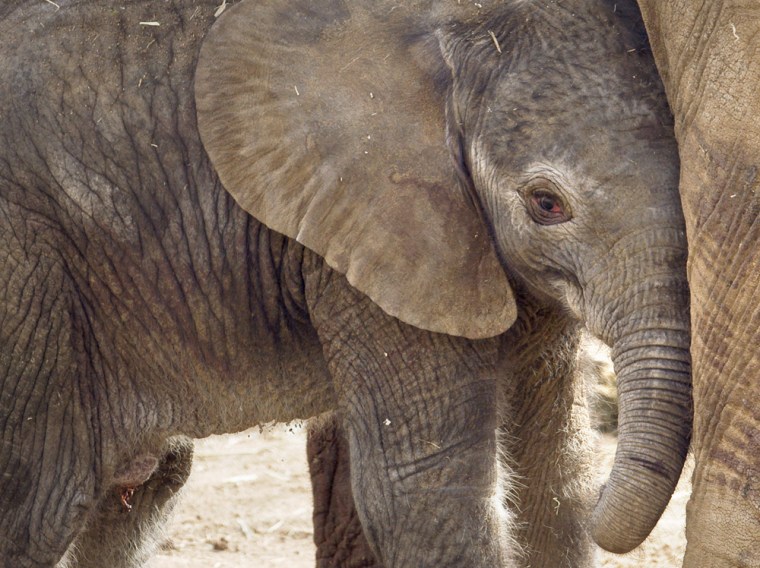Zookeepers across the country are bolstering hygiene practices after an outbreak of drug-resistant staph infections swapped between caretakers and a sick baby elephant at the San Diego Zoo.
At least 20 zoo workers turned up with methicillin-resistant Staphylococcus aureus skin lesions last year, but only after a caretaker infected the elephant calf being hand-raised because her mother couldn’t care for her.
It’s the first known incidence of MRSA in a zoo elephant and the first known transmission of the potentially lethal bug from zoo animals to humans, according to an investigation released this week by the federal Centers for Disease Control and Prevention.
The incident underscores worries about community-acquired strains of MRSA, which can be transmitted across species, said Dr. Kimberly May, a veterinarian and spokeswoman for the American Veterinary Medical Association.
“It’s a big public health concern for us,” May said. “It’s been recognized that humans can give it to animals and animals can give it back to us. It’s a pretty scary cycle when you’re talking about MRSA.”
Animal health experts are reviewing hygiene procedures ranging from handwashing to protective equipment, said Dr. Paul Boyle, senior vice president for conservation and education for the Association of Zoos and Aquariums.
“It’s a particularly high profile organism,” he said. “It makes you say ‘Jeepers, what’s going on?’”
Sanitation is a constant concern at zoos, where staff members work to protect both humans and animals, Boyle said. “We’re visiting the process that already occurs,” he said.
Zookeepers cared for calf around the clock
Close contact between San Diego zookeepers who fed, bathed, groomed and played with the female calf likely led to the outbreak, said Dr. Donald Janssen, the zoo’s associate director of veterinary services.
“This was a pretty unique situation, the need to have intimate contact with an elephant calf,” he said, adding that members of the public were never at risk because of the situation.
Some 55 workers cared around-the-clock for the African elephant, which was born in November 2007, but failed to thrive after her mother couldn’t provide enough milk. The site of a feeding tube inserted to help the calf gain weight became infected and MRSA lesions later developed on the animal’s leg and elbow, said Dr. David Sugerman, a San Diego-based member of the CDC’s epidemic intelligence service.
The CDC report concluded that a caretaker colonized with MRSA likely infected the calf, who in turn spread the infection to the other workers.
MRSA infections typically don’t respond to most front-line antibiotics. Most cases are mild skin infections, but they can progress to become life-threatening blood or bone infections. Health officials have been concerned about growing numbers of cases of MRSA acquired not in hospitals, as in the past, but in community settings.
The 20 zookeepers who developed confirmed or suspected MRSA skin infections were those who had closest contact with the calf, the report showed. Most of the infections were very mild; three of the workers received antibiotics.
None of the other African elephants at the zoo, including the calf’s mother, tested positive for MRSA.
The CDC report recommended better training and increased attention to hand washing, protective clothing and disinfecting surfaces.
The calf had to be euthanized in February, not because of the MRSA infection, but from another opportunistic bacterial infection, said Janssen.
“It’s always a very sad situation when you lose an animal like this,” Janssen said. “It was a bad loss.”
